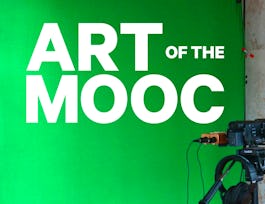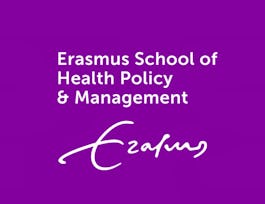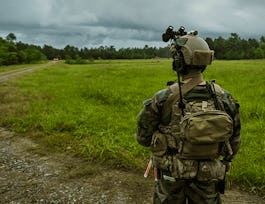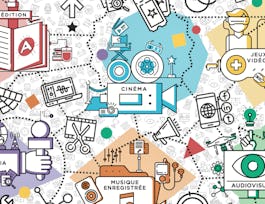This course is for activists, artists, and thinkers who wish to better understand and participate in social change. We will focus on the prolific and exciting overlap between socially engaged art and cultural practices generated by recent social movements around the world. Rather than assess the political efficacy of activities like mourning, listening, organizing, dancing, or partying, the lectures examine such cultural activities next to, and within, contemporary art practice.


ART of the MOOC: Activism and Social Movements
Taught in English
Some content may not be translated
20,847 already enrolled
(138 reviews)
Details to know

Add to your LinkedIn profile
9 quizzes
See how employees at top companies are mastering in-demand skills


Earn a career certificate
Add this credential to your LinkedIn profile, resume, or CV
Share it on social media and in your performance review

There are 7 modules in this course
This short module includes an overview of the course's structure, working process, global community, and overall guidelines. Make sure to read it right away and refer back to it whenever needed.
What's included
1 video3 readings
This opening segment is dedicated to the prolific and exciting overlap between socially engaged art and cultural practices generated by recent social movements around the world. Environmentalism, AIDS activism, Queer movements, Zapatismo, immigrant rallies, alter-globalization, the World Social Forum, Occupy, the Hong Kong Umbrella Movement, museum boycotts, and democratic uprisings in the Middle East will be seen in dialogue with cultural producers who participate in these movements or are inspired by them. Rather than assess the political efficacy of such cultural activities, we will examine their place within contemporary art practices. Based on Listening, Organizing, Dancing, or Partying, each student’s contribution will respond to a particular social movement of their choosing.
What's included
10 videos1 quiz
The prompt, lecture and guest presentations will provide the foundation and inspiration for students’ own experiments. These student experiments were originally peer reviewed projects in the ART of the MOOC series, but have now been made entirely optional and self-reviewed. If you want to do them, we recommend you chose one of the two options (one is more social, the other more individual) and complete the optional quiz after you are done. Your project submissions and the quiz are not graded, so they will not impact your performance in the course.
Just as recent social movements have transformed contemporary art and culture, activists have relied on ideas developed in more specialized cultural circles, sometimes without knowing it. Starting with an exploration of the ways in which socially engaged public art has been included and excluded from particular narratives, theories, institutions, and events, we will use this lesson to follow social practices as they question conventional art and art history. As we do so, students will be invited to create projects that directly engage with Cultivating, Farming, Cooking, or Eating—activities that are fundamentally social but traditionally seen to contradict serious artistic production.
What's included
9 videos1 quiz
The prompt, lecture and guest presentations will provide the foundation and inspiration for students’ own experiments. These student experiments were originally peer reviewed projects in the ART of the MOOC series, but have now been made entirely optional and self-reviewed. If you want to do them, we recommend you chose one of the two options (one is more social, the other more individual) and complete the optional quiz after you are done. Your project submissions and the quiz are not graded, so they will not impact your performance in the course.
This lesson will use the notion of ‘embodied knowledges’ to link activism and socially engaged art to performance art, gesture, and ‘writing without words.’ Recognizing that knowledge is inseparable from one’s lived, physical, and social experience, ‘embodied knowledges” challenge the Western paradigms that separate information from matter, reason from affect, mind from the body, the worker from her labor, the individual from the collective. This lesson’s practical components will ask students to actively think ‘from’ their particular site of enunciation and ‘through’ their particular embodied knowledge. Guest presenters: Mujeres Creando, Regina José Galindo, Mariam Ghani, Sharon Hayes, Chemi Rosado-Seijo
What's included
7 videos1 quiz
The prompt, lecture and guest presentations will provide a foundation and inspiration for students’ own experiments.The prompt, lecture and guest presentations will provide the foundation and inspiration for students’ own experiments. These student experiments were originally peer reviewed projects in the ART of the MOOC series, but have now been made entirely optional and self-reviewed. If you want to do them, we recommend you chose one of the two options (one is more social, the other more individual) and complete the optional quiz after you are done. Your project submissions and the quiz are not graded, so they will not impact your performance in the course.
Instructors


Recommended if you're interested in Music and Art

Duke University

Erasmus University Rotterdam

Columbia University
Why people choose Coursera for their career




Learner reviews
Showing 3 of 138
138 reviews
- 5 stars
70%
- 4 stars
18.57%
- 3 stars
6.42%
- 2 stars
4.28%
- 1 star
0.71%

Open new doors with Coursera Plus
Unlimited access to 7,000+ world-class courses, hands-on projects, and job-ready certificate programs - all included in your subscription
Advance your career with an online degree
Earn a degree from world-class universities - 100% online
Join over 3,400 global companies that choose Coursera for Business
Upskill your employees to excel in the digital economy
Frequently asked questions
No. Completion of a Coursera course does not earn you academic credit from Duke; therefore, Duke is not able to provide you with a university transcript. However, your electronic Certificate will be added to your Accomplishments page - from there, you can print your Certificate or add it to your LinkedIn profile.
Access to lectures and assignments depends on your type of enrollment. If you take a course in audit mode, you will be able to see most course materials for free. To access graded assignments and to earn a Certificate, you will need to purchase the Certificate experience, during or after your audit. If you don't see the audit option:
The course may not offer an audit option. You can try a Free Trial instead, or apply for Financial Aid.
The course may offer 'Full Course, No Certificate' instead. This option lets you see all course materials, submit required assessments, and get a final grade. This also means that you will not be able to purchase a Certificate experience.
When you purchase a Certificate you get access to all course materials, including graded assignments. Upon completing the course, your electronic Certificate will be added to your Accomplishments page - from there, you can print your Certificate or add it to your LinkedIn profile. If you only want to read and view the course content, you can audit the course for free.





